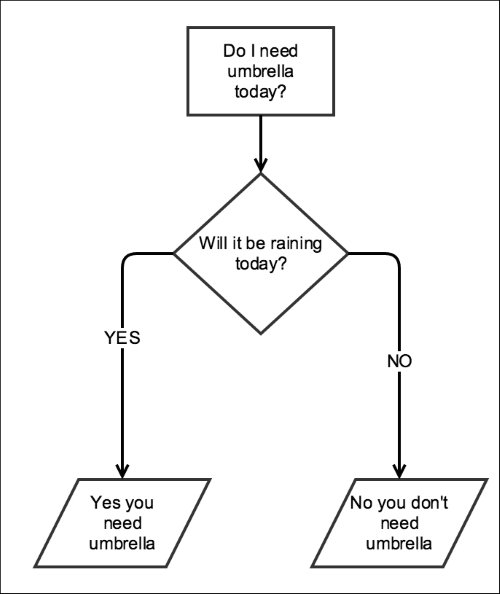Making decisions in code
The fundamental mechanism of programming is making decisions. In everyday life, we make hundreds—and possibly thousands—of decisions a day. They might be the results of simple questions such as, "Do I need an umbrella today?" or "Should I drive at the maximum motorway speed at the moment?" Let's first take a question and draw a single graph, as follows:

This is a fairly easy question. If it will be raining, I need an umbrella; otherwise, I don't. In programming, we call it an if statement. It's a way we describe to the computer what code should be executed under what conditions. The question "Will it be raining?" is the condition. When planning your code, you should always break down decision-making in to simple questions that can be answered only by a "yes" or a "no."
Note
In C# syntax, we use true or false instead of yes/no.
We now know how the simplest if statements work. Let's see how this question will look in code. Let's create a new script, name it LearningStatements...























































